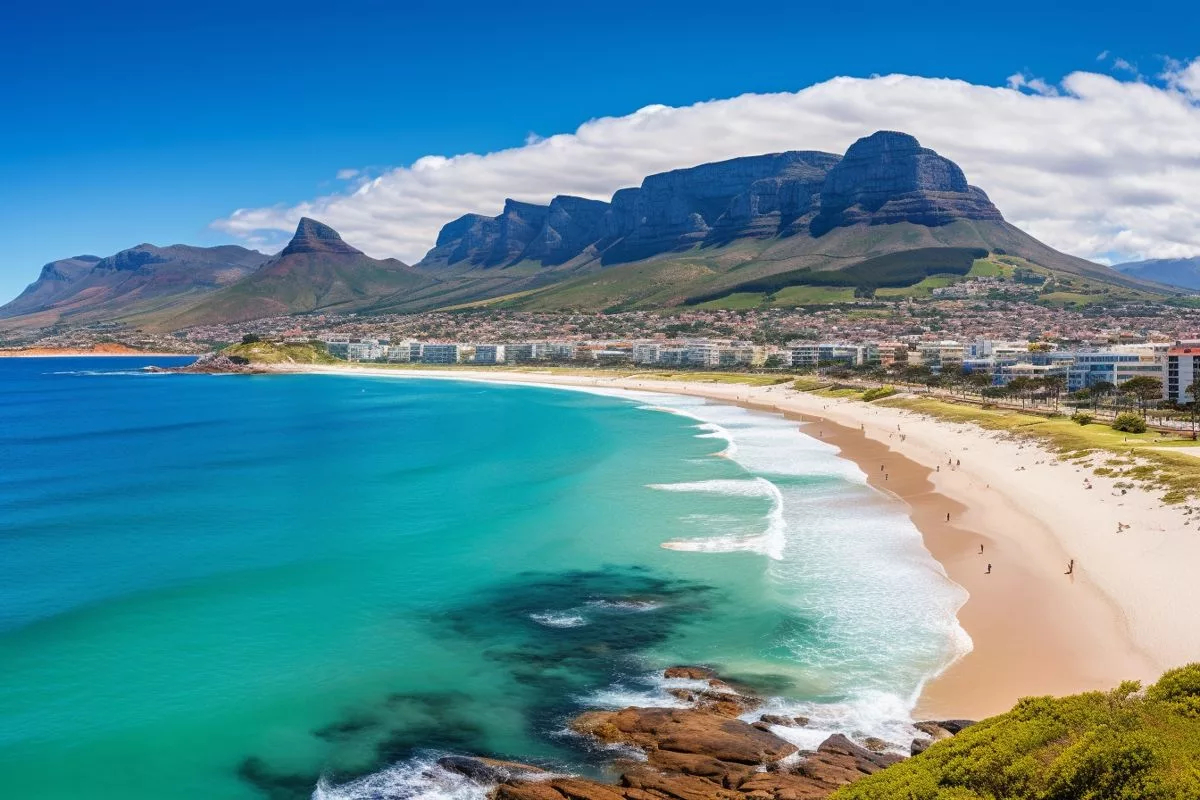Cape Town is leading the way in the global fight against climate change, being recognized as the first Compact-compliant city in Africa. The city has established a strong foundation of strategies and plans to combat climate change, including tangible projects like the solar water heater accreditation program. Cape Town’s dedication to reducing greenhouse gas emissions and strengthening its climate resilience has earned it international recognition, serving as an inspiration and call to action for cities worldwide.
Cape Town has been recognized as the first Compact-compliant city in Africa for its approach to addressing climate change. The city has established a robust foundation of strategies and plans to navigate the uncertain path of climate change and has reflected its efforts in tangible projects, such as the solar water heater accreditation and marketing program. Cape Town’s recognition as the 2014 global Earth Hour City Capital serves as a validation of its ongoing dedication to reducing greenhouse gas emissions, setting ambitious climate targets, and strengthening its climate resilience.
On the southernmost point of Africa, a beacon of progress and hope has emerged in the global fight against climate change – the city of Cape Town. Earning international acclaim for its robust and devoted approach toward addressing climate change, this vibrant city has been recognized as the first Compact-compliant city in Africa. This noteworthy achievement distinguishes Cape Town as a global frontrunner in the fight against climate change, reflecting the city’s dedication to fostering a resilient and sustainable future.
Driving Change: The Intersection of Planning and Action
Central to Cape Town’s pledge to battle climate change is a potent mix of initiatives, strategic planning, and concrete action. The city has not only met but surpassed the stringent stipulations set by the Compact of Mayors, a worldwide alliance of civic leaders dedicated to reducing local greenhouse gas emissions, augmenting resilience to climate change, and transparently recording their progress.
Under the leadership of Executive Mayor Patricia De Lille, Cape Town has established a robust foundation of strategies and plans to navigate the uncertain path of climate change. The anchor of this foundation is the city’s Energy2040 goals and action plan, an innovative strategy that paves the way for Cape Town towards a future with greater energy security and resource efficiency.
The Power of Tangible Projects
Nevertheless, the significance of these plans is not merely theoretical. Cape Town’s efforts to combat climate change are reflected in tangible, wide-ranging, and influential projects. A prime instance of this is the city’s solar water heater accreditation and marketing program. This initiative has infused over R105 million worth of solar water heaters into the economy, resulting in a significant reduction in city-wide electricity consumption and CO2 emissions.
Moreover, Cape Town’s initiatives extend beyond its geographical boundaries, urging its citizens to actively participate in the fight against climate change. Through the city’s small-scale embedded generation project, households and businesses are incentivized to install rooftop photovoltaic panels. This enables them to generate renewable energy and feed surplus solar energy back into the city’s electricity grid.
Recognition and Commitment
This fusion of strategic planning, concrete action, and citizen participation culminated in Cape Town being honored as the 2014 global Earth Hour City Capital, an accolade that saw the city surpass 163 other contenders. This recognition serves as a validation of Cape Town’s ongoing dedication to reducing greenhouse gas emissions, setting ambitious climate targets, and strengthening its climate resilience.
Cape Town’s efforts to combat climate change showcase a city with an unwavering resolve to shape a future that is not only secure and resilient but also leaves a lesser carbon footprint. Its commitment to safeguarding the environment for future generations is unwavering, as evident in the plethora of initiatives and projects that the city has implemented to fight climate change.
A Beacon of Hope and Progress
In essence, Cape Town is a luminous example of a city that not only acknowledges the reality of climate change but also actively endeavors to mitigate its impacts. Its international recognition is not just an accolade to be admired but also serves as a call to action for cities globally – a stark reminder that the battle against climate change begins at home, in our cities and communities.
In conclusion, Cape Town’s work against climate change, as reflected in its international recognition, serves as a beacon of hope and progress. This demonstrates that with the right blend of planning, action, dedication, and local participation, cities can indeed become significant contributors to the global fight against climate change.
1. What is Cape Town’s status as a city in the fight against climate change?
Cape Town is recognized as the first Compact-compliant city in Africa and a global frontrunner in the fight against climate change.
2. What initiatives has Cape Town taken to combat climate change?
Cape Town has established a robust foundation of strategies and plans, including the Energy2040 goals and action plan, and implemented tangible projects like the solar water heater accreditation program and small-scale embedded generation project.
3. How has Cape Town’s solar water heater accreditation program impacted the city?
The solar water heater accreditation program has infused over R105 million worth of solar water heaters into the economy, resulting in a significant reduction in city-wide electricity consumption and CO2 emissions.
4. How does Cape Town encourage citizen participation in the fight against climate change?
Cape Town’s small-scale embedded generation project incentivizes households and businesses to install rooftop photovoltaic panels, enabling them to generate renewable energy and feed surplus solar energy back into the city’s electricity grid.
5. What recognition has Cape Town received for its efforts?
Cape Town was honored as the 2014 global Earth Hour City Capital, surpassing 163 other contenders, for its ongoing dedication to reducing greenhouse gas emissions, setting ambitious climate targets, and strengthening its climate resilience.
6. What message does Cape Town’s efforts send to other cities?
Cape Town’s efforts serve as a call to action for cities globally to actively endeavor to mitigate the impacts of climate change and become significant contributors to the global fight against it.








